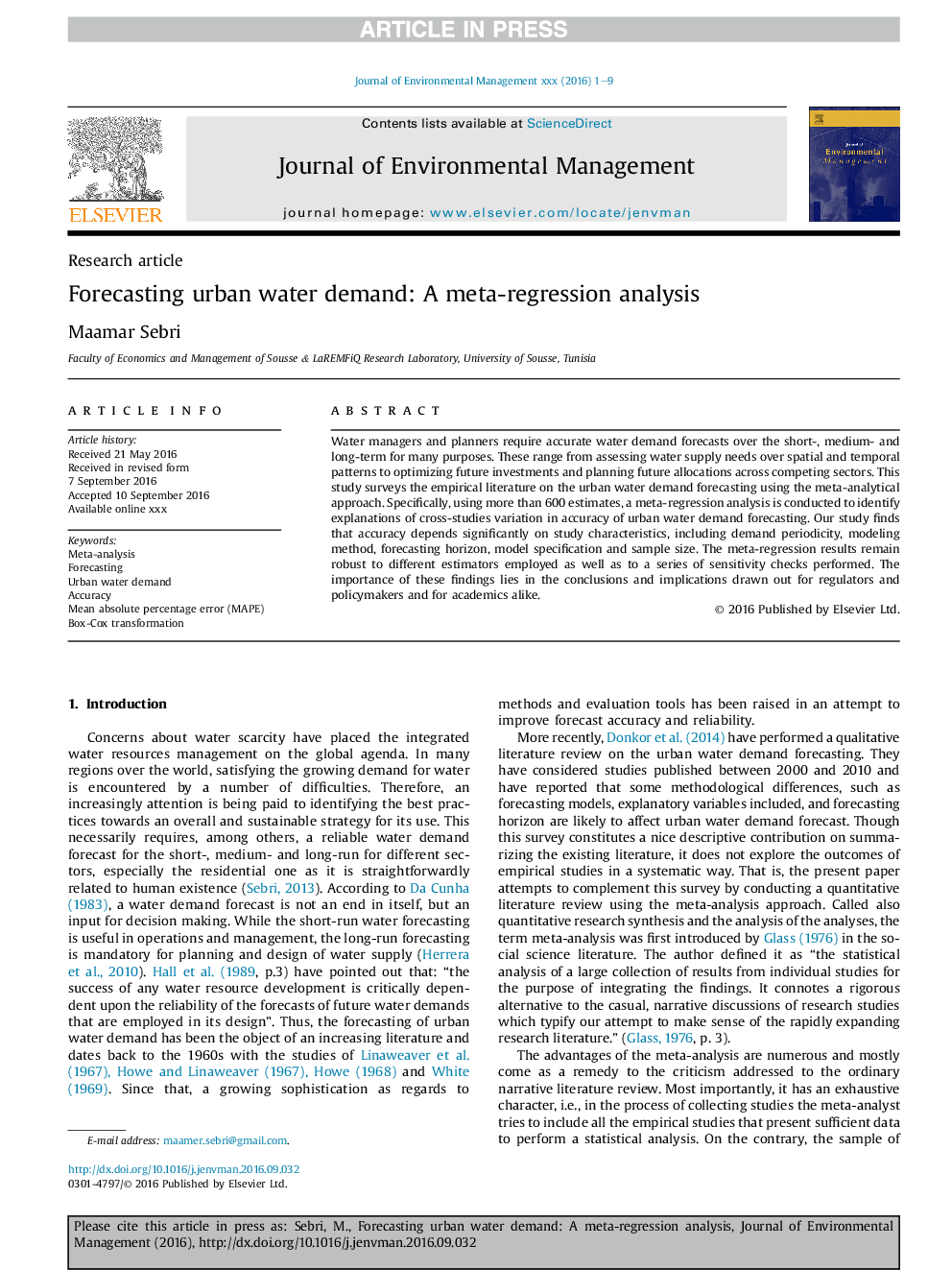| Article ID | Journal | Published Year | Pages | File Type |
|---|---|---|---|---|
| 5117215 | Journal of Environmental Management | 2016 | 9 Pages |
Abstract
Water managers and planners require accurate water demand forecasts over the short-, medium- and long-term for many purposes. These range from assessing water supply needs over spatial and temporal patterns to optimizing future investments and planning future allocations across competing sectors. This study surveys the empirical literature on the urban water demand forecasting using the meta-analytical approach. Specifically, using more than 600 estimates, a meta-regression analysis is conducted to identify explanations of cross-studies variation in accuracy of urban water demand forecasting. Our study finds that accuracy depends significantly on study characteristics, including demand periodicity, modeling method, forecasting horizon, model specification and sample size. The meta-regression results remain robust to different estimators employed as well as to a series of sensitivity checks performed. The importance of these findings lies in the conclusions and implications drawn out for regulators and policymakers and for academics alike.
Keywords
Related Topics
Physical Sciences and Engineering
Energy
Renewable Energy, Sustainability and the Environment
Authors
Maamar Sebri,
